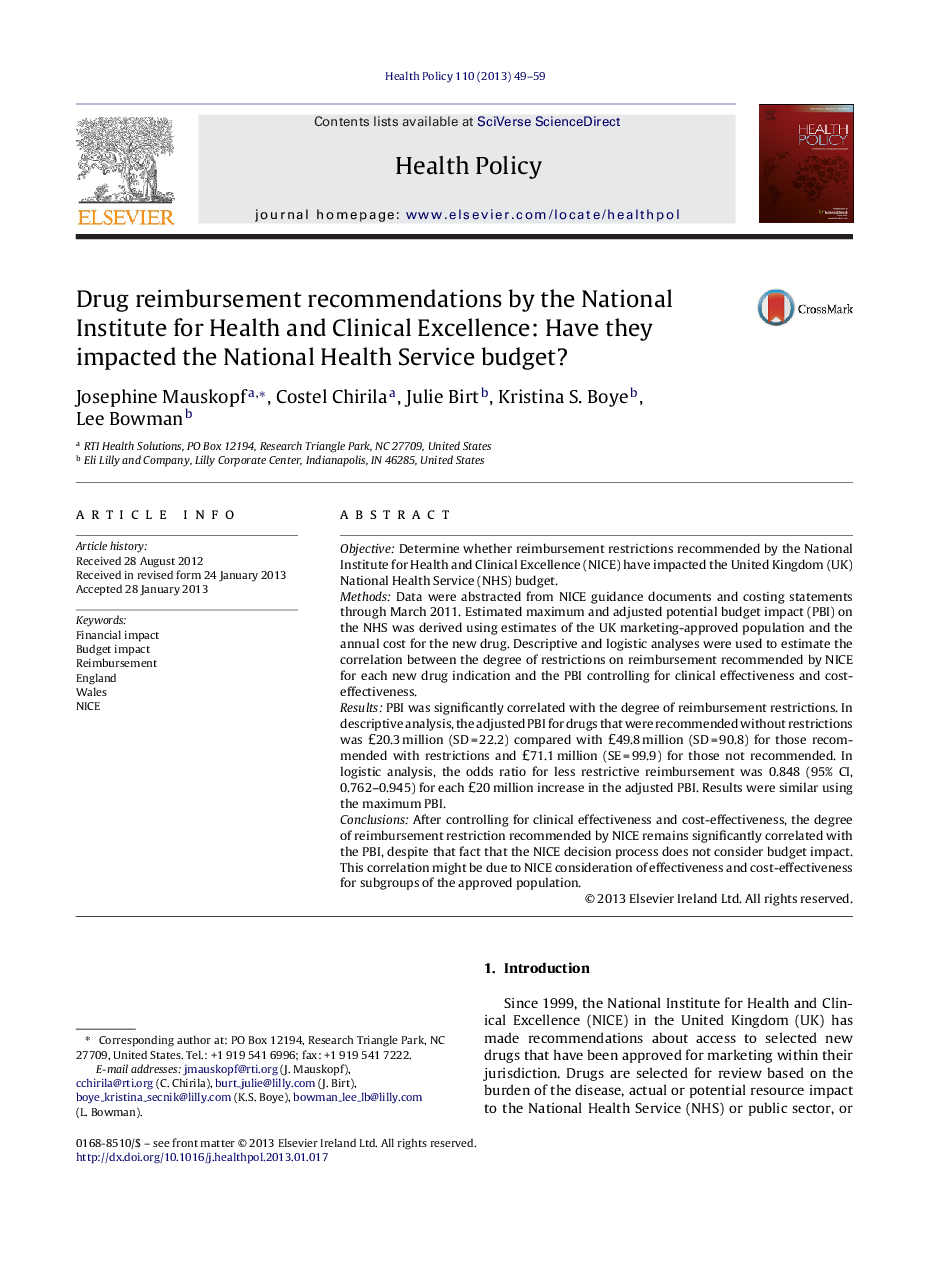| Article ID | Journal | Published Year | Pages | File Type |
|---|---|---|---|---|
| 6239980 | Health Policy | 2013 | 11 Pages |
ObjectiveDetermine whether reimbursement restrictions recommended by the National Institute for Health and Clinical Excellence (NICE) have impacted the United Kingdom (UK) National Health Service (NHS) budget.MethodsData were abstracted from NICE guidance documents and costing statements through March 2011. Estimated maximum and adjusted potential budget impact (PBI) on the NHS was derived using estimates of the UK marketing-approved population and the annual cost for the new drug. Descriptive and logistic analyses were used to estimate the correlation between the degree of restrictions on reimbursement recommended by NICE for each new drug indication and the PBI controlling for clinical effectiveness and cost-effectiveness.ResultsPBI was significantly correlated with the degree of reimbursement restrictions. In descriptive analysis, the adjusted PBI for drugs that were recommended without restrictions was £20.3 million (SD = 22.2) compared with £49.8 million (SD = 90.8) for those recommended with restrictions and £71.1 million (SE = 99.9) for those not recommended. In logistic analysis, the odds ratio for less restrictive reimbursement was 0.848 (95% CI, 0.762-0.945) for each £20 million increase in the adjusted PBI. Results were similar using the maximum PBI.ConclusionsAfter controlling for clinical effectiveness and cost-effectiveness, the degree of reimbursement restriction recommended by NICE remains significantly correlated with the PBI, despite that fact that the NICE decision process does not consider budget impact. This correlation might be due to NICE consideration of effectiveness and cost-effectiveness for subgroups of the approved population.
